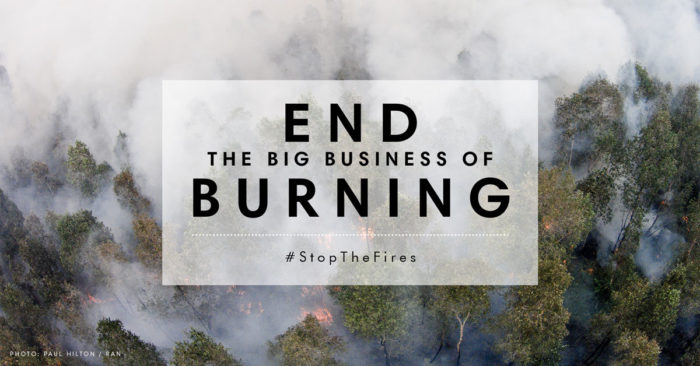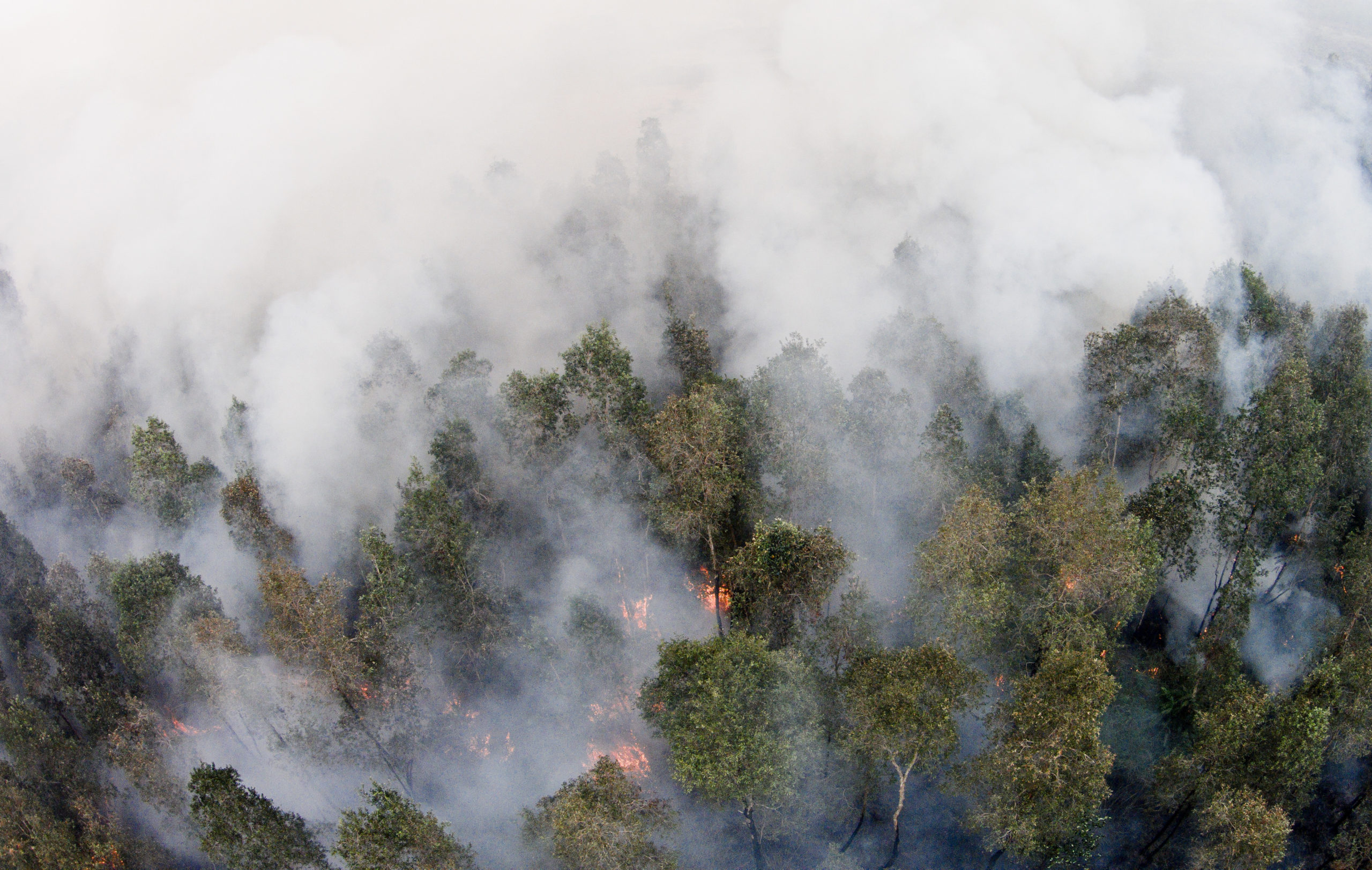It’s not an exaggeration to say that the world is on fire right now. We’re experiencing the hottest June on record in North America and in Africa, and massive fires are torching California, Greece, Algeria, Turkey, Siberia and the Amazon rainforest.
It’s obvious that we’ve reached climate change tipping points and our planet is sending us a Code Red for humanity. The recent IPCC report warned us that unless we reduce greenhouse gas emissions immediately and rapidly, keeping us under 1.5°C of warming will be beyond reach, threatening our very survival. Unprecedented heat waves and wildfires are only the beginning of what will be the new normal in the years to come.

Forest Fire Hotspot: Indonesia
The pristine, lush rainforests of Sumatra, Kalimantan and Borneo in Indonesia are some of the last remaining in the world, and the only place where elephants, tigers, rhinos and orangutans live together. But they’re being intentionally burned to clear forest for Conflict Palm oil and pulp plantations — and it’s not being covered in the news. That’s a big problem for both the health of the rainforests and for our climate. That’s because the peatland forests are our best line of defense against climate change as one square kilometer (0.37 square miles) of peat stores as much as 123 tons of carbon dioxide per year. This also means, when peatlands get burned, it’s a literal carbon bomb that’s being released into the atmosphere — which is why we need to protect them.
Big international brands and banks are complicit in burning and bulldozing these critical rainforests. They source from and provide financial services to companies that are that are aggressively expanding their palm oil and pulp and paper businesses at the cost of the rainforests, endangered species, Indigenous Peoples and communities who depend on them — and the climate.
Procter & Gamble — one of the worst rainforest destroyers
One of the biggest culprits causing fires in Indonesia is the Royal Golden Eagle (RGE) group, a large conglomerate that controls millions of acres of land used for both pulp and palm oil production. Despite RGE’s track record of mass deforestation and unresolved community conflicts, major brands like Procter & Gamble, Kao, Mondelēz, Ferrero, Colgate Palmolive, Unilever, Mars and Nestlé still source palm oil from RGE and banks like Mitsubishi UFJ Financial Group (MUFG), Industrial and Commercial Bank of China (ICBC)continue to finance their destructive practices.
RAN’s research shows that by doing business with the RGE group, these brands and banks have contributed to fires destroying an estimated 230,000 acres of forests in Indonesia between 2015 and 2021 — that’s the surface area of about one third of Yosemite National Park!

During the last fire season, thousands called on these brands to stop doing business with the RGE group. To date not a single company has suspended sourcing from RGE group’s palm oil divisions that continue to be named in their supplier list. Most of these brands have also failed to disclose details on where they’re getting their pulp and paper from; meaning we can not confirm if they’re sourcing from RGE’s pulp companies, including APRIL and Toba Pulp Lestari (TPL).
In other words: the palm oil Procter & Gamble is using for its countless cosmetic products is supplied by a corporate monolith known for burning Indonesia’s rainforests. What’s more, P&G is one of the worst-performing laggards when it comes to our key demands, which is to source palm and pulp supplied only from companies that protect rainforests, particularly peatlands, and uphold the rights of Indigenous Peoples, frontline communities and plantation workers.
We need action – not next month, not next year, but NOW
That’s why we need to ramp up the pressure on Procter & Gamble and its peers. Both the brands and the banks are trying to pass the buck to RGE, as if they had no choice but to buy from or finance a notoriously problematic producer. We need to make it clear that being complicit = being guilty and that rainforest destruction is literally a crime against humanity.
We have only a few years left to avoid catastrophic climate disasters and there are only a handful of intact rainforests and peatlands left in the world — protecting them is of the utmost urgency. Companies that condone blowing carbon bombs into the atmosphere need to be held accountable for their failure to put people and planet over short term profits.
If you haven’t yet, take action now calling on Procter & Gamble to suspend sourcing from RGE immediately.
